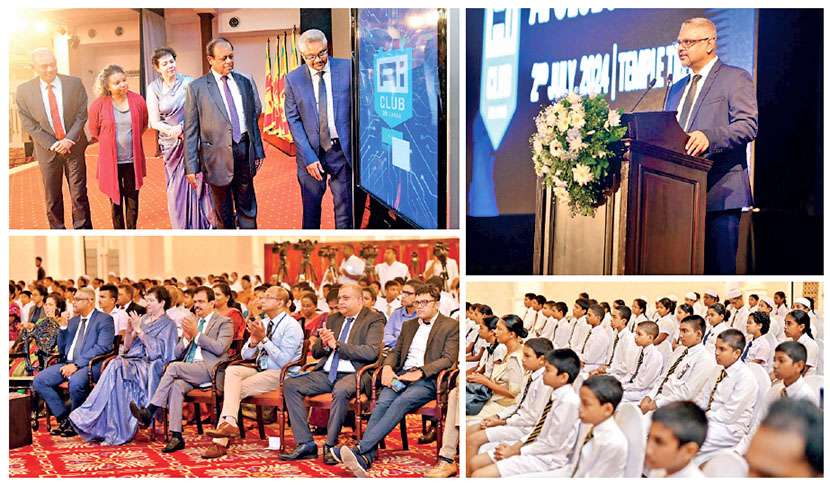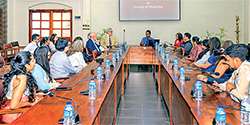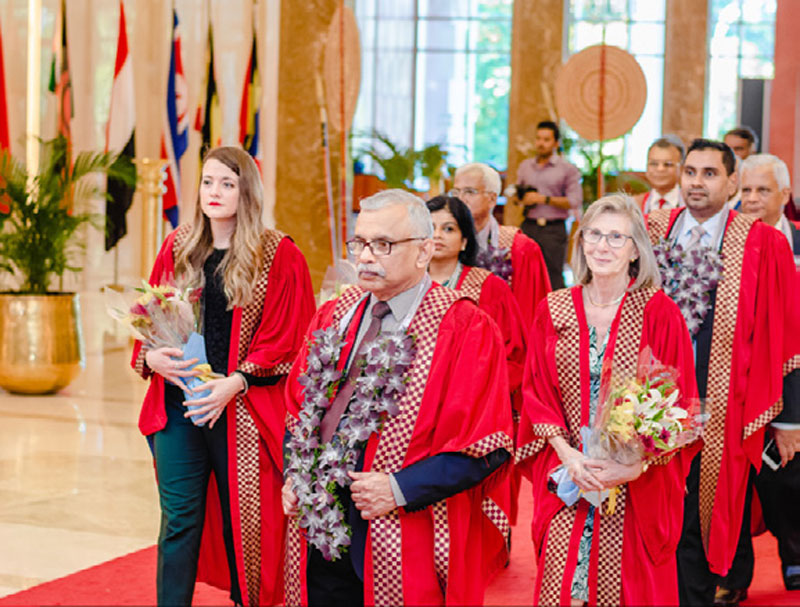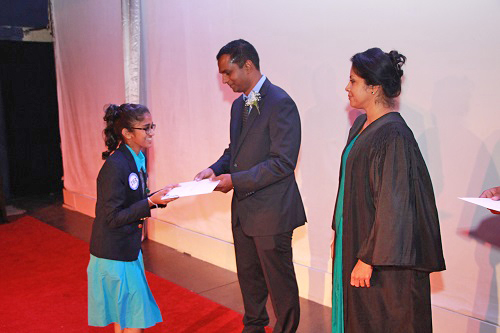‘AI Clubs in schools’ launched

In a move to enhance artificial intelligence (AI) literacy among school children, an initiative called ‘AI Clubs in schools’ was launched on July 2, at Temple Trees, Colombo. As a part of the National AI Strategy 2024-2028, it aims to foster knowledge and skills, while preparing students for a future integrated with AI. This joint project is done by the Technology and Education Ministries in collaboration with local, international and private organisations such as Microsoft, AIClub, the Sri Lanka Association of Software and Service Companies (SLASSCOM), and IronOne.
The programme is led by Dr Nisha Talagala, the CEO of AIClub and a trailblazer in AI literacy. An allocation of Rs 1 billion has been made under the National Budget 2024 for AI initiatives including the establishment of a national AI centre. A glaring issue in this project is the technological divide that is prominent in Sri Lanka. There are many students across the country who not only lack access to devices and connectivity but to IT education as well. “The Fiberization project conducted by the Ministry of Technology aims to ensure that all schools across the country will receive the necessary equipment and knowledge with the eventual expansion of the project,” State Minister of Technology Kanaka Herath said.
He added that the schools selected for the pilot project are representative of all districts, ethnic groups and media. AI Clubs in Schools aims to introduce the principles of AI to students in Grades 6-9. The primary objectives include improving AI literacy among students, providing practical experience with the relevant technology, fostering innovation, critical thinking and problem-solving while also preparing students for future careers in AI and technology. The AI Clubs will be instituted under the guidance of Dr Nisha Talagala and Dr Romesh Ranawana, who have been instrumental in leading the AI initiative in Sri Lanka.
The National AI Strategy intends to utilise AI to drive inclusive growth, innovation and sustainable development and is aligned with the UN Sustainable Development Goals (SDGs). It focuses on some key areas, namely data strategy which will ensure value creation with data and the ethical use of data. Other areas include skills development, infrastructure – investing in secure and sustainable digital infrastructure, research and development and public awareness. The pilot stage of this programme covers 100 schools islandwide and will reach approximately 300,000 students.
These schools were chosen due to their existing fibre optic internet connectivity, established through the Schools Fiberization project which has already connected 1,000 schools across the country. As the second phase of this project, equipment such as smart boards, and laptops will be provided to these schools under the Ministry of Technology, thus ensuring their ability to integrate AI education into school curricula. Under this project, AI Clubs will function as an extracurricular activity within schools while also as a subject in schools. An AI syllabus for Grade 8 will be introduced in 20 selected schools as a pilot project.
Additionally, this programme will provide books, resources and training sessions for principals and educators with support from facilitators with basic IT skills. At the end of the programme, students are expected to build and present AI models which address real-world issues, out of which the best will be awarded. A significant aspect of the AI Clubs programme is the AIClub Navigator platform, which is accessible to students of all ages. The platform includes access to tools used by AI professionals, the capacity to build custom AI projects while also being easy to use and compatibility with any device using a Chrome browser.
While the pilot project has not been specified for students with disabilities, the inclusive education concepts will be partially beneficial. It has been planned to use AI to more effectively support the education of differently-abled students in the future. The Ministry of Technology is in discussions with the Ministry of Education regarding potential AI programmes to aid inclusive education. Another noteworthy feature of this project is the support mechanisms in place for teachers who may struggle with the AI curriculum. Teachers from the selected schools will receive training for the AI Club initiative, supported by AIClub and SLASSCOM. A pool of local trainers will be provisionally trained. Additionally, Microsoft has committed to training 100 teachers. The Ministries of Education and Technology are currently developing a comprehensive AI teacher training programme. - Renishka Fernando









































.jpg)
.jpg)
.jpg)
.jpg)

.jpg)
